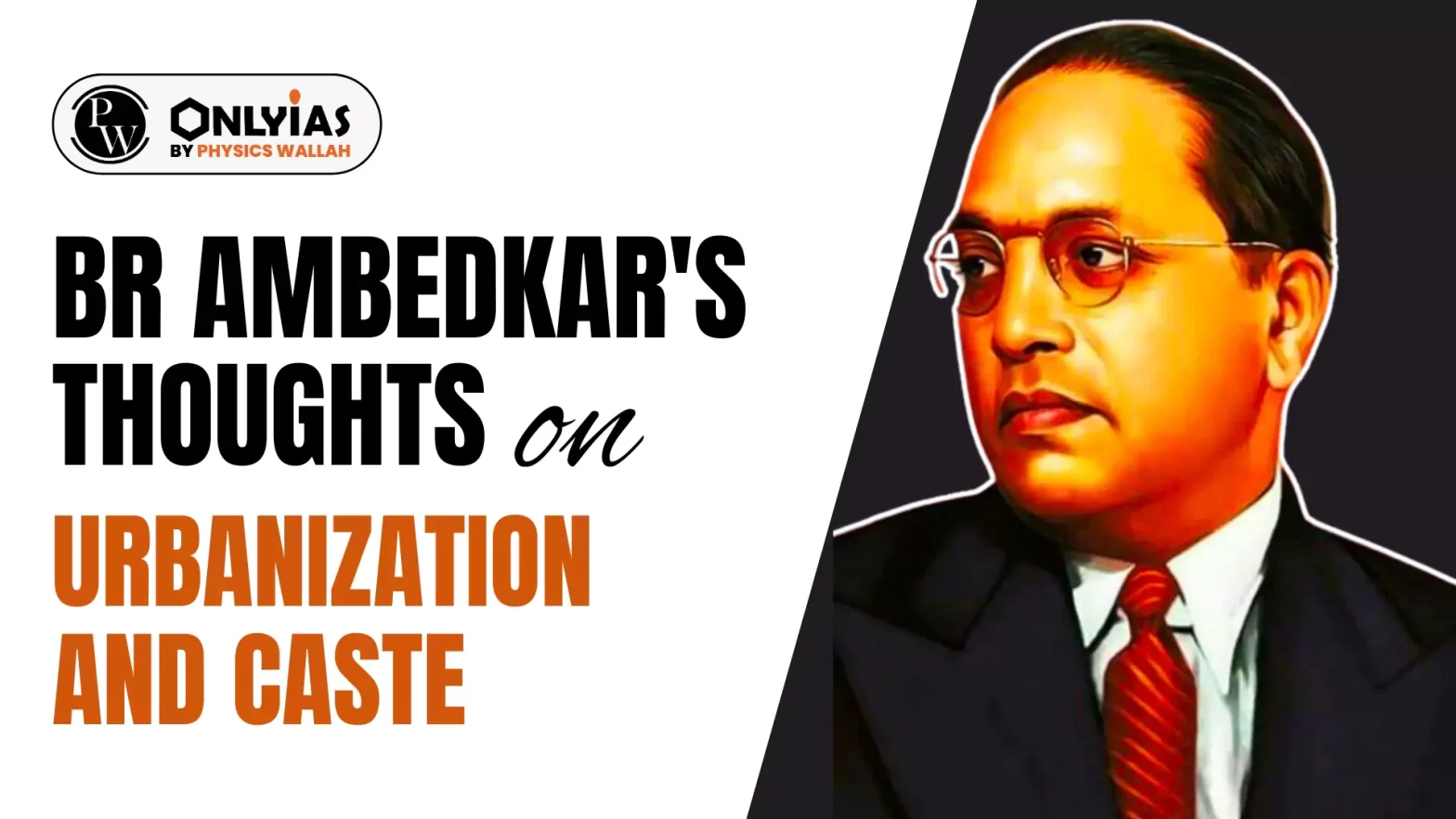Context
The Indian cities has failed the aspirations and expectations that the Dalit liberation movement had placed in urbanization.
Enroll now for UPSC Online Course
Perspectives on Village Life
- Contrasting Views of Ambedkar and Gandhi: B.R. Ambedkar and Gandhi ji held contrasting views on the role of Indian villages in society.
- Ambedkar saw villages as bastions of caste oppression, while Gandhi idealized them as equitable and self-reliant communities.
- Ambedkar’s Opposition to Village Autonomy: Ambedkar opposed the idea of recognizing villages as autonomous administrative units in the Constituent Assembly.
- He believed such recognition would exacerbate caste-based discrimination, particularly affecting Dalits.
BR Ambedkar thoughts On Urbanization and Caste
- Opportunity for Liberation: Ambedkar viewed urbanization as an opportunity for Dalit liberation, as cities weaken systems of caste oppression prevalent in villages.
- Anonymity in Cities: He believed anonymity in cities offered a chance to transition from caste-based to class-based social orders.
- Acknowledgement of Challenges: Ambedkar recognised the continuation of caste-based prejudice in urban settings, as evidenced by his difficulty to locate home in Baroda.
Caste and Spatiality in Indian Cities
- Language of ‘Purity-Pollution’: Caste emerges in urban spatiality through conceptions of ‘purity-pollution,’ which influence housing choices and public policy.
- Segregation and Discrimination: Dalits and Muslims are severely segregated and discriminated against in terms of housing, access to public facilities, and environmental quality.
- State Sanctioned Discrimination: State-sanctioned discrimination occurs when governments impose Brahminical restrictions, such as banning meat sales and promoting caste-based segregation in public settings.
Impact of Urban Governance Policies
- Housing Crises and Segregation: Urban governance practices exacerbate caste-based segregation, limiting housing access and public service delivery.
- Forced Evictions: Forced evictions disproportionately affect Dalits and Muslims, aggravating housing insecurity and marginalization.
- A recent report by the Housing and Land Rights Network on forced evictions in India also shows that Dalits and Muslims are the most impacted by slum demolition drives.
- Failure of Indian Cities: Despite BR Ambedkar’s promises, Indian cities have failed to deliver on the promise of urbanization, leaving Dalits marginalized and trapped in ghettos.
Enroll now for UPSC Online Classes
Conclusion
To achieve BR Ambedkar’s vision of urban emancipation, substantial policy interventions and social transformations must be implemented to address caste-based segregation and discrimination.
Also Read: Backward Class And Dalit Movements In India
| Prelims PYQ (2020):
Which one of the following categories of Fundamental Rights incorporate protection against untouchability as a form of discrimination?
(a) Right against Exploitation
(b) Right to Freedom
(c) Right to Constitutional Remedies
(d) Right to Equality
Ans: (d) |
![]() 15 Apr 2024
15 Apr 2024
